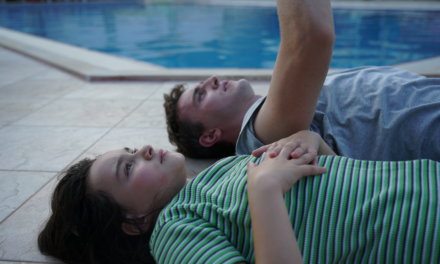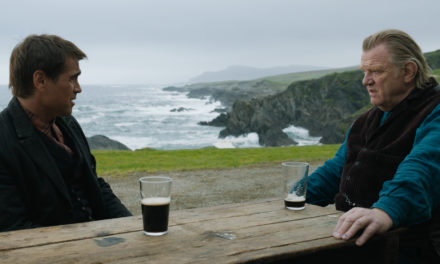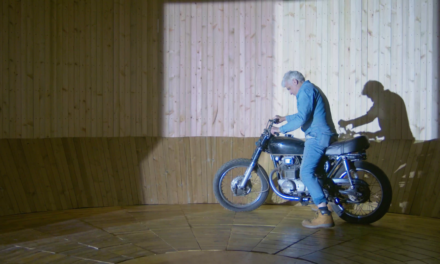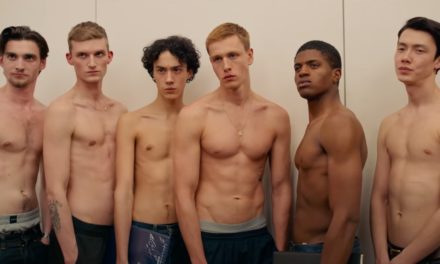“You need to find the person between the relationship, that other person that is the relationship”, Maya Hawk tells her father over a rather unstable zoom connection. The relationship she is referring to is that of Paul Newman and Joanne Woodward who’s careers span five decades and ten films together, the last true movie stars. The sentiment of the title is taken from a quote by their close friend Gore Vidal who characterises the two as the last of a specific breed of stardom that when combined was perhaps bigger than even celluloid could contain: Becal/Bogart, Taylor/Burton, Woodward/Newman. When seeing the two together it’s easy to see why, they possess this beautiful radiant energy that is from a different era of Hollywood entirely. Ethan Hawk interrogates this stardom from every angle over the series of a six part documentary that excellently constructs a transcendent piece of oral film history through archival footage, interviews with family and collaborators and bizarre vocal reenactments of thought to be destroyed transcripts from Paul Newman’s abandoned autobiography.
On all accounts this exercise shouldn’t work, entirely conducted over zoom and discussing stars who seem somewhat irrelevant to the modern cultural conversation or perhaps being too well trodden ground all together. Although it is abundantly obvious from the start that Hawk idolises the two actors the documentary never feels like an exercise in fandom, instead his perspective allows for a deeper appreciation for the two to register and his exuberant brand of cinephelia is infectious. Hawk’s obvious appreciation for Newman and Woodward also allows him to discuss the more intrusive personal aspects of their life to be done in a tasteful and loving manner. There is a nice archival moment when Hawk is in the crowd at the actors studio in the late 90s listening intently to Woodward speak, this is a passion project that has been a long time coming for him.
“his perspective allows for a deeper appreciation for the two to register and his exuberant brand of cinephelia is infectious”
Hawk enlists the help of famous friends for his reenactments that for the most part works really well and you quickly forget they are not real interviews, although the inclusion of George Clooney playing Newman is never not jarring. However, it is the interviews of the filmmakers that truly enriches the experience. The choice to both include directors who have work with Newman, like the ever articulate Martin Scorsese, as well as those who have deep admiration for the two. Hawk’s close collaborator Richard Linklater discusses the importance of ‘The Colour Of Money’ to him as a filmmaker, which would not be a film you would perhaps immediately associate to the director only to realise that the time passing mechanism built into the storytelling could be ripped straight out of one of his own films. Another great example of this is the inclusion of the wholesomely grubby Paul Schrader discussing how much he loves Hud as the anti-hero that inspired Travis Bickle.
One of the most revelatory aspects of the film for me was discovering the craftsmanship of Woodward as a performer who I knew very little about, Hawk even makes the point that most people know very little of Woodward’s filmography. The documentary focuses as much on her work as that of Newman’s and is fascinating to gain a new appreciation for an artist who’s work was perhaps handicapped by being married to one of the most famous men in the world. Like many stories of women working in the film industry it is one of having to find smaller outlets for their artistry despite being at the heights of their power.
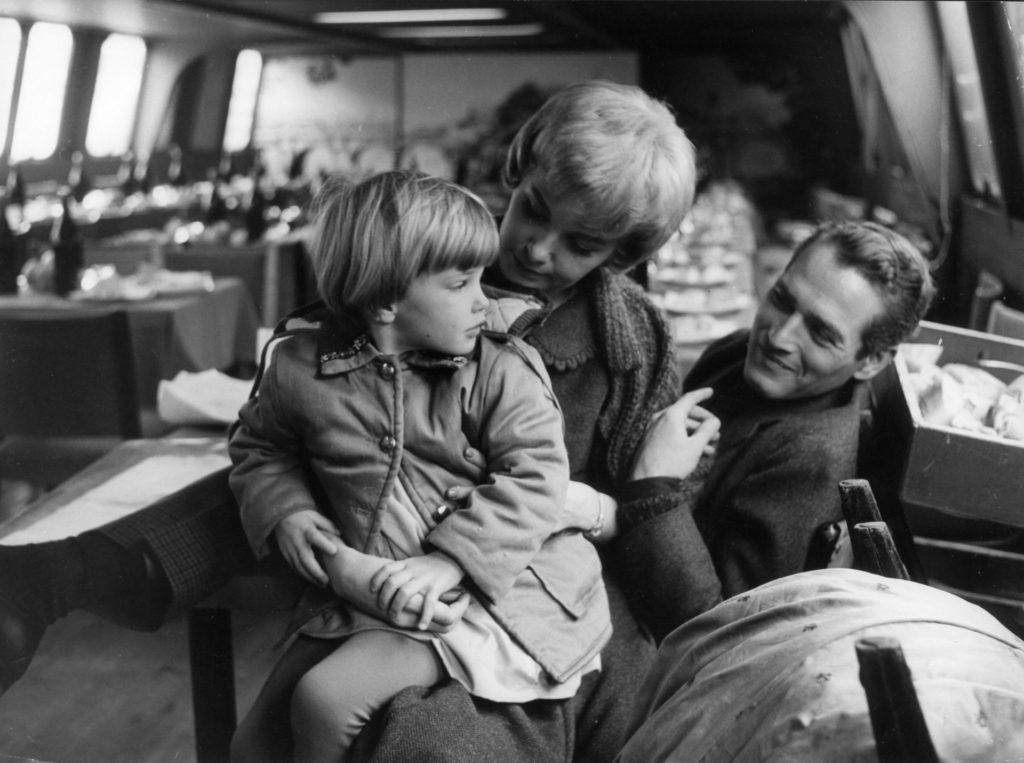
There is a deeper story at play here, one of a semi unconventional relationship in both the sense that the two got together whilst Newman was married as well as the fact that they stayed together for the rest of their lives and by all accounts seemed to actually really like each other. Whenever you see the pair together you can’t help but feel that there isn’t much pretence to the dynamic, they just seem like genuinely nice people who inspire each other. The deeper you get into their relationship the more you’re expecting to find something false hidden within it that, quite remarkably, never emerges. Every part of the twos career is dived into in incredible detail, from their personal lives to the lesser known aspects of their filmography. Hawk allows clips from the films to breath and result in some truly evocative moments added to by the context provided, a clip of Newman playing the banjo in ‘Cool Hand Luke’ intercut with the context of his mother dying is particularly transcendent.
In an interview during the section on the 1982 film ‘The Verdict’ director Sidney Lumet states “all good art is self-revelatory”. The shows construction proves this to be true, each canonical aspect of the actors filmography revealing a new dimension to the couples reality. Their careers prove both to be a self-conscious exercise in their fame whilst simultaneously attempting to discover new things about themselves and each other, whether it be Newman wrestling his alcoholic self-destructive impulses by making ‘The Verdict’ or Woodward coming to terms with her predisposition to Alzheimer in ‘Do You Remember Love’. As Newman puts it, it is about “navigating emotional wreckage” through art, it’s as cathartic as it is heartbreaking. When this idea is thrown back at Hawk by Zoe Kazan, who asks him what this exercise purges from himself he thinks for a moment then responds he doesn’t know. And I don’t think it is the artists job to know, the impulse to make something is perhaps best left unobserved until being looked back on later. When watching you do sense that Hawk himself is perhaps learning from the couple, how to be empathetic, how to use your fame for good, how to be a better parent. Perhaps the biggest takeaway that we can gain from their careers is that Paul Newman might just be the coolest guy ever, but Joanne Woodward was even cooler.


